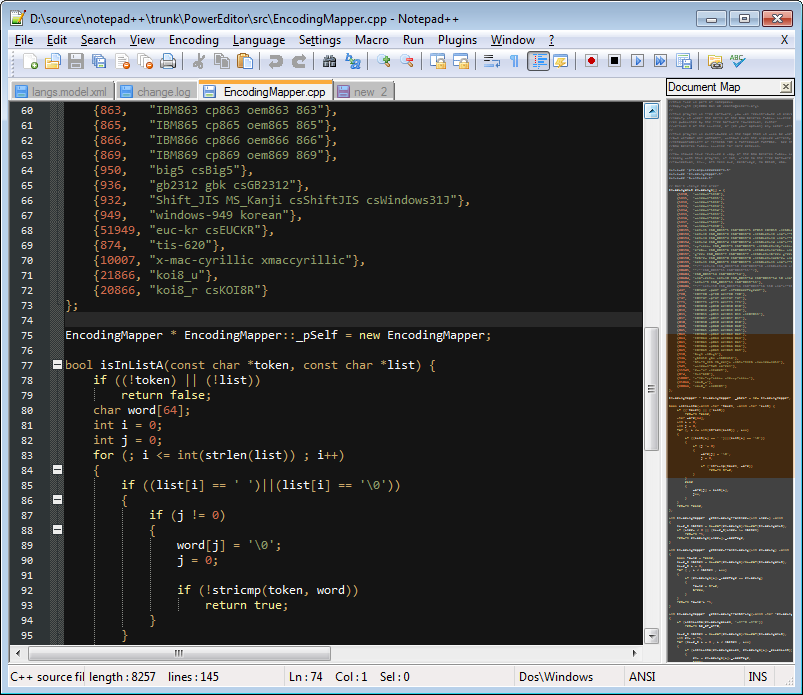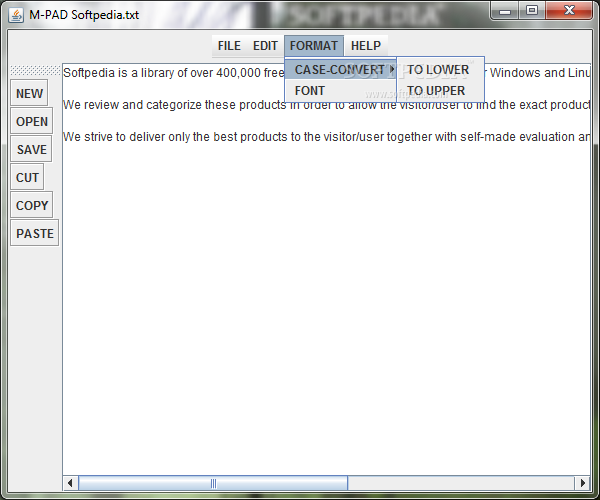
The sub-windows default to being side by side. You can scroll a cloned file independently, this can be particularly useful if you want to check how something was defined at the top of a document while editing something further down the document. After a document is cloned, any change to one will instantly affect the other version too, they will remain identical. “Clone to Other View” opens a second copy of the document, your current changes to the document will carry to the cloned document. Using “Move to Other View” is helpful if you want to specifically have two different documents open. “Clone to Other View” will open a second copy of the tab in the other sub-window or create one if needed. “Move to Other View” will move the tab over to the other sub-window, or create one if there isn’t one already. Right-click on an open tab, then click “Move to Other View” or “Clone to Other View”. It worked for me and I hope this post helps.To split the Notepad++ window into two sub-windows, right-click on an open tab, then click “Move to Other View” or “Clone to Other View”. You have made Notepad++ as the default editor in Ubuntu. Once doing the required changes, revert back the permission change made earlier for the gnome folder by the following command. Now, SAVE the file once this change is done and close the file. Now replace the gedit bu Notepad++ so that, it would set the Notepad++ as default application for the plain text.

You can also individually set Notepad++ as default application for certain type of file.įor example, if you want to edit only plain text files in Notepad++, n the "defaults.list" file find for "text/plain" and you will get a line as follows,

Note: Again here, the gnome folder is write protected by default so, open the terminal and navigate to "/usr/share" path and execute the following command.

So open the terminal and navigate to "/usr/share" path and execute the following command. NOTE: The applications folder is write protected by default. We need to paste the copied file "Notepad++.desktop" in the below path Once after installing Notepad++ using WINE, copy the file "Notepad++.desktop" under, "/.local/share/applications/wine/programs/Notepad++" I have followed the below steps and that exactly made me to fix this issue and made Notepad++ as the default editor in Ubuntu.


 0 kommentar(er)
0 kommentar(er)
